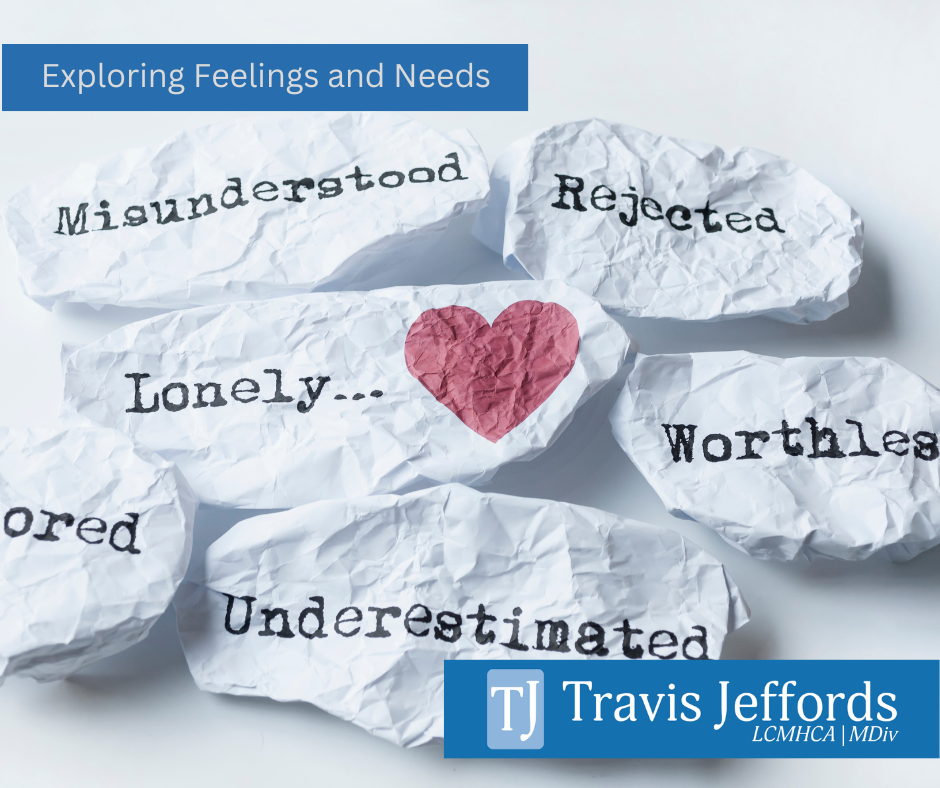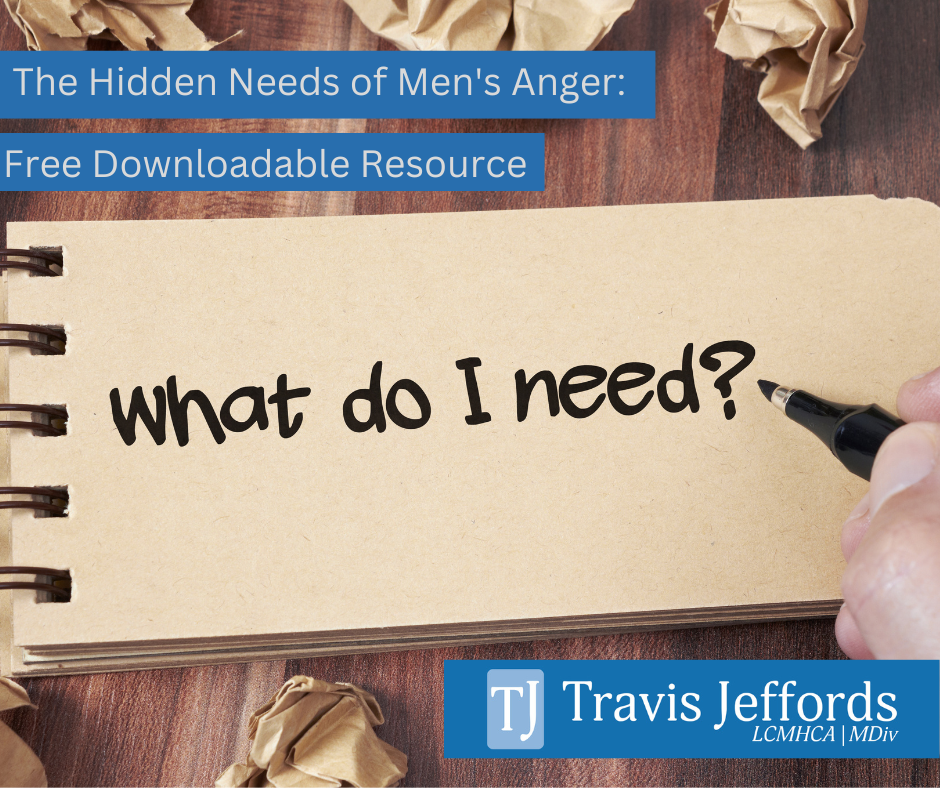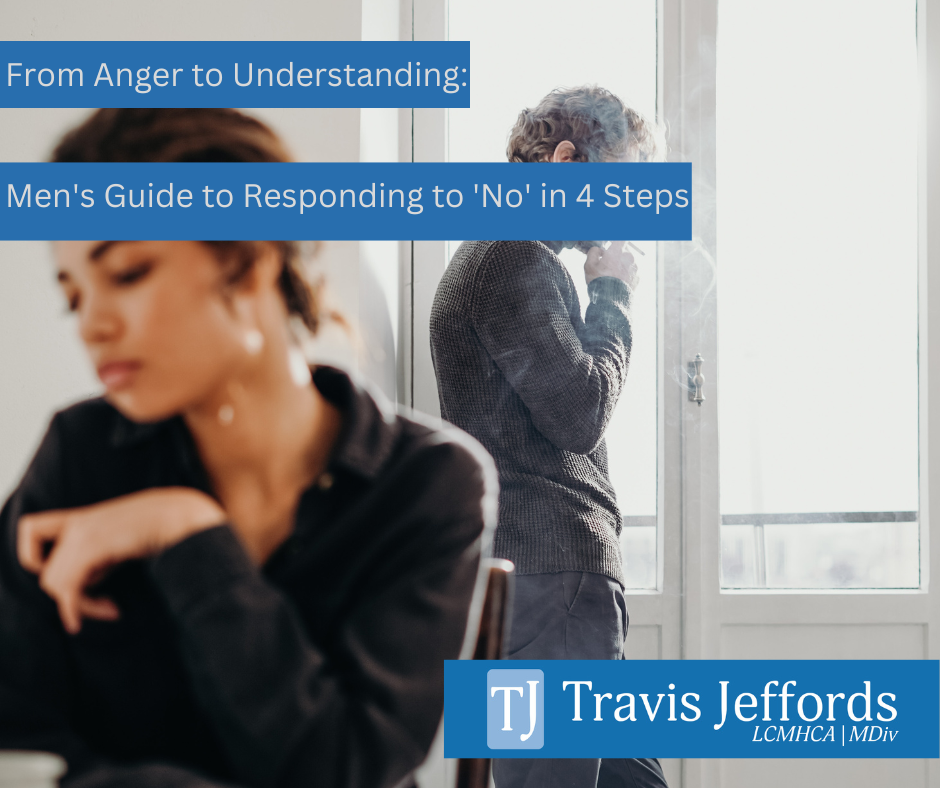The Healthy Way Men CAN Scream at Their Partners
Sometimes in life what we are experiencing is simply too much for our coping skills to be able to handle. It happens to all men. In those instances, many men end up screaming at their partners in ways that are harmful to their partner and their relationships. Most men know they’ve messed up after the fact, and are filled with a sense of regret and remorse at their actions, but, they don't know how to stop the cycle.
Marshall Rosenberg, expert on healthy communication, has radically suggested that in those extreme moments there actually IS in fact a way to “scream at others” that does not inflict damage or violence upon them.
That’s exactly what this post will share.
A Quick Note on Domestic Violence
If you are in a relationship involving domestic abuse or violence - please reach out for help: https://www.thehotline.org/
As a therapist, I specialize in helping men with anger, self-criticism, and anxiety, because I believe all people deserve, and need healing and compassion. However, I do not believe anyone deserves to be in an abusive relationship, or condone abuse in any way, shape, or form.
Finding The Pattern: What Happens When Men Usually Explode
Listen to these three examples of a man screaming at someone when what they are experiencing is too much for their ability to cope:
I hate you! You’re so selfish! You only think about yourself and you never think about what I’m going through!
You’re such a b^#$ch! You are the worst thing to ever happen to me!
You always ignore me! I called you four times and you didn’t answer! I texted you and you didn’t answer either!
What do these three explosive episodes have in common? In each of the three examples the man screaming these things is blaming the person he is yelling at for the intense feelings that he is having.
When most men feel strong emotions, they often have two default ways of reacting:
They blame others
They blame themselves
Oftentimes men will move from one to the other - initially blaming other people for the strong feelings they are feeling, and then, once they have cooled down, they experience intense feelings of regret and begin to blame themselves. When you are locked into this way of being in the world where your only two options are to either blame someone else or to blame yourself, you are going to continue to get caught in this cycle of violent communication.
But, there is another way:
Breaking the Cycle: Exploring Feelings and Needs
A key shift happens when you are able to connect with your own feelings and needs. Recognizing that you feel angry or frustrated is a great start. Then, take time to sit with that anger with a sense of curiosity and ask what other feelings arise.
Here’s a list of 10 possible feelings that could be happening beneath your anger:
Sadness
Anxiety
Jealousy
Shame
Insecurity
Grief
Overwhelmed
Loneliness
Exhaustion
Helplessness
That’s the first step - recognizing what you are feeling. There are many more feelings than these 10, of course, but, these are some major ones we experience.
Step two is recognizing what core need you are needing in the moment that your anger is trying to alert you of.
Here are 10 core needs that we have:
The need to autonomy and distance from others
The need for meaning
The need for self-worth
The need for grief
The need for closeness with others
The need for fun
The need for basic physical needs
The need for peace and order
The need for support
The need for love
Again, there are more core needs than these 10, but, these are some big ones. The first step to screaming nonviolently is to recognize your own feelings and needs in the moment.
Screaming Nonviolently
Once you can recognize your feeling and need, you can name it at any volume level, and it will not come across as an attack, but as the actual cry for help that it is.
Ideally would you state your feeling and need at a normal volume level? Absolutely. But sometimes in life we are simply passed our ability to regulate ourselves in that way. In those moments, if you feel you must scream, we need to scream our feelings and needs, and not scream out in blame. Screaming feelings and needs is different then screaming in blame, which is an act of violent communication.
Can you sense the difference between these two examples?
This is an example of screaming where you are blaming your partner:
You are so selfish! You only care about yourself. You always spend all your free time with your friends and never think about me or what I want to do!
This is entirely based on blaming the other person and stating how they are the one responsible for your intense emotions. But here is a second example of the same situation where you scream your feelings and needs:
I’m feeling distant from you and scared about our relationship! I need us to check in and spend some time together in the next week!
Does anyone like getting screamed at? No. Definitely not. But, for me, there is a very big difference between the way these two screams would be interpreted. The first feels aggressive, and honestly emotionally violent. The second, to me, comes across as an earnest expression of the pain that you are in.
If you’re still skeptical about this whole expressing your feelings and needs thing, that’s totally okay. If you’re unsure, as an experiment, you might want to show this section to your partner, and ask them if they sense a difference between the first and second statement.
When You Can’t Figure Out Your Feelings and Needs Are
Sometimes it can be hard to figure out exactly what’s going on inside us at all times…it’s confusing. If you notice yourself starting to get angry and feel like you are going to blame your partner for what you’re feeling, try saying this:
“I’m really angry right now and I don’t know why! I don’t know what’s happening, I just know I’m angry, and right now I need some space to be alone until my angry part is a little less intense and I can figure out what’s happening inside of me.”
Then, go take some time and space to cool down.
The 5 Coping Skills Every Man Needs to Know
When you need to take time to calm down and regulate yourself, it can be really helpful to have a few good coping skills that you can go to.
I have a free video download below with The 5 Coping Skills Every Man Needs to Know. In it, I teach five of the most used and highly supported coping skills in the counseling profession today. These really can make a difference.
The shift from blaming to understanding feelings and needs is a life change and a relationship saver, but it doesn’t happen overnight. Mental Health Professionals can help you make that transition, and can increasing awareness around what your feelings and needs actually are.
If you haven’t grown up being taught to name and recognize your feelings, it can be a learning curve, but it’s possible. Imagine if you’ve never held a baseball in your life, and all of the sudden you show up to try out to pitch on a minor league baseball team. You’d probably have to do some training before you were ready. That’s what relationships can be like for men sometimes too. Luckily, there are people who can help.
Wishing you the best on your mental health journey.
Hi, I’m Travis.
My clients describe me as calm, compassionate, and curious…
You have these qualities inside you at your core too. You just need a little help uncovering them.
If you’re dominated by anger, anxiety, shame, or self-criticism, we can help you re-connect with who you really are: confident, calm, courageous, compassionate, and connected to yourself and others.
Travis Jeffords - LCMHCA | MDiv. | Male Counselor
In-person counselor: Greensboro & Winston-Salem
Virtual counselor: North Carolina
Licensed Counselor















